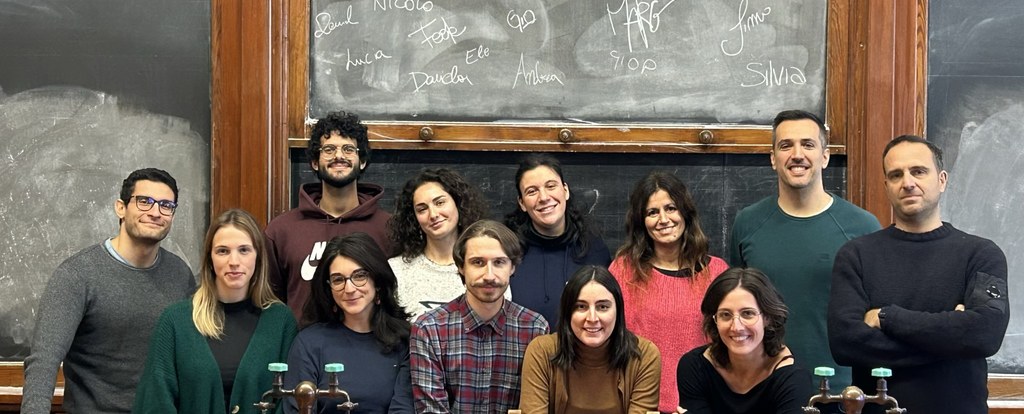Homepage
Our Research
The object of our research are the planet microbiomes, as the life support system for the whole biosphere. Microbiomes are indeed responsible for oxygen production, global nutrient circulation, plant primary productivity, and animal and human health. This microbiome centrality for the planet health translates into multiple fields of application of our research, from human, animal and plant biology, where we explore the microbiome-host co-evolutionary trajectories and the impact on health and disease, to food production, resource circularization and environmental health, where natural microbiomes represent a promising source of sustainable solutions. Our primary goal is indeed to derive concrete microbiome-based applications for a better and more sustainable planet, targeting some of the 17 United Nation Sustainable Development Goals, such as good health and well-being, affordable and clean energy, sustainable cities and communities, climate action, life below water and life on land.
Exploring microbial ecology
Publications
-

2026 - Disrupted gut microbiome networks and unhealthy behaviors predict metabolic dysfunction in children and adolescents in the long term
-

2025 - Early antimicrobial regimen shapes gut microbiota and health trajectories in pigs: a longitudinal study from weaning to finishing
-
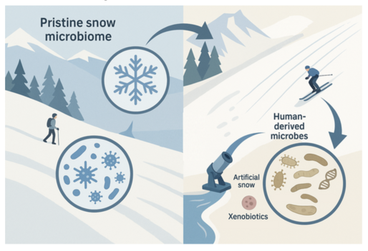
2025 - Ski Tourism Shapes the Snow Microbiome on Ski Slopes in the Italian Central Alps
-
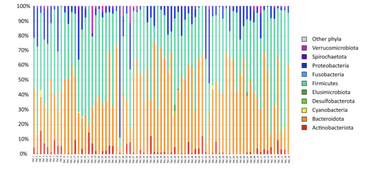
2025 - Genetic characterization of enteric protozoan microorganisms in newly arrived migrants in Italy and correlation with the gut microbiome layout
-

2025 - Harnessing agri-food system microbiomes for sustainability and human health
-
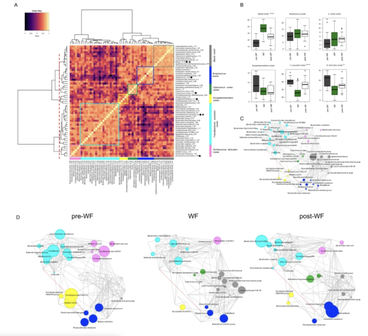
2025 - Consumption of only wild foods induces large scale, partially persistent alterations to the gut microbiome
-
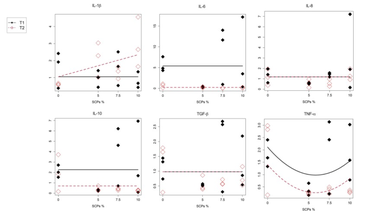
2025 - First insight into the practical dietary application of Torula yeast single cell protein in gilthead sea bream
-
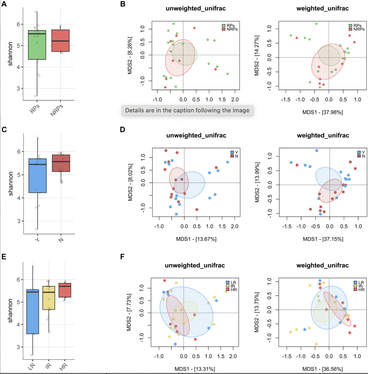
2025 - Gut Microbiome as a Potential Marker of Hematologic Recovery Following Induction Therapy in Acute Myeloid Leukemia Patients
-
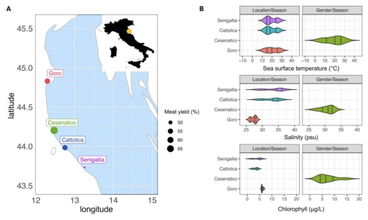
2025 - Stability and expression patterns of housekeeping genes in Mediterranean mussels (Mytilus galloprovincialis) under field investigations
-
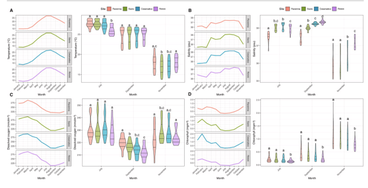
2025 - Physiological plasticity and life history traits affect Chamelea gallina acclimatory responses during a marine heatwave
-
2025 - Microbial Ecology and Nutritional Features in Liquid Sourdough Containing Hemp Flour Fermented by Lactic Acid Bacterial Strains
-
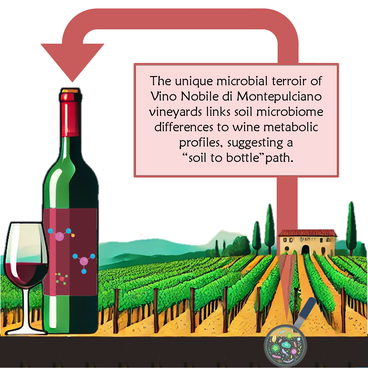
2024 - Zonation of the Vitis vinifera microbiome in Vino Nobile di Montepulciano PDO production area
-

2024 - A 15-day pilot biodiversity intervention with horses in a farm system leads to gut microbiome rewilding in 10 urban Italian children
-
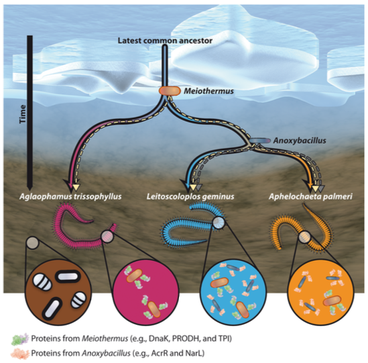
2024 - Resistance to freezing conditions of endemic Antarcticpolychaetes is enhanced by cryoprotective proteinsproduced by their microbiome
-
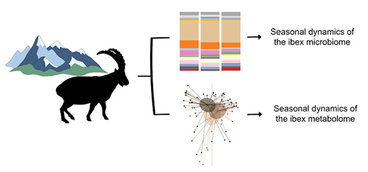
2024 - The Alpine ibex (Capra ibex) gut microbiome, seasonal dynamics and potential application in lignocellulose bioconversion
-
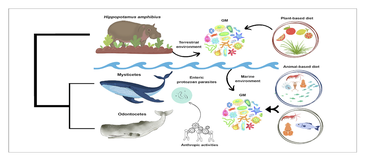
2024 - Meta-analysis of the Cetacea gut microbiome: Diversity, co-evolution, and interaction with the anthropogenic pathobiome
-
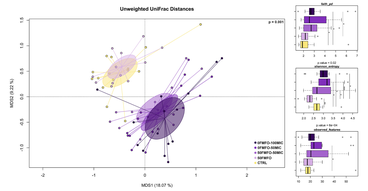
2024 - The use of fishery and aquaculture by-products with Nannochloropsis sp. allows total dietary replacement of wild-caught fishmeal, fish oil and soy protein in European sea bass juveniles
-
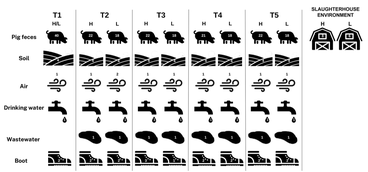
2024 - Dispersion of antimicrobial resistant bacteria in pig farms and in the surrounding environment
-
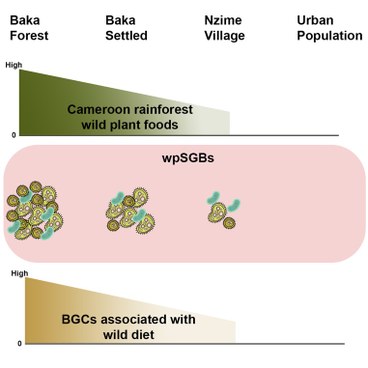
2024 - The gut microbiome of Baka forager-horticulturalists from Cameroon is optimized for wild plant foods
-
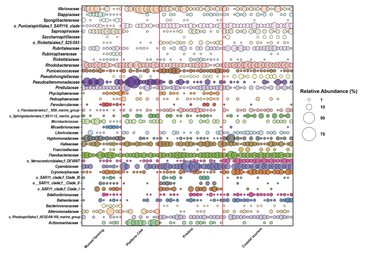
2024 - Signature of the anthropogenic impacts on the epipelagic microbiome of the North-Western Adriatic Sea (Mediterranean Sea)
-
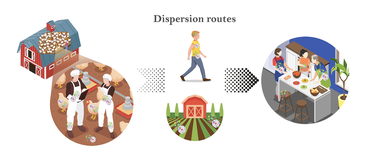
2024 - Routes of dispersion of antibiotic resistance genes from the poultry farm system
-
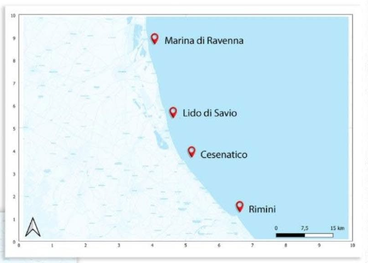
2023 - Microbiome variation at the clam-sediment interface may explain changes in local productivity of Chamelea gallina in the North Adriatic sea
-
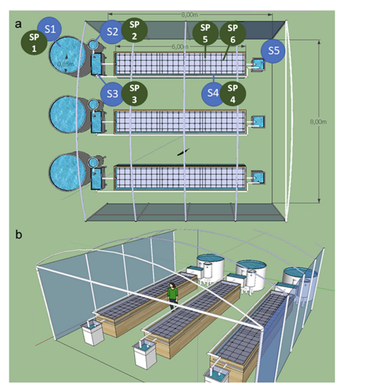
2023 - Microbiome study of a coupled aquaponic system: unveiling the independency of bacterial communities and their beneficial influences among different compartments
-
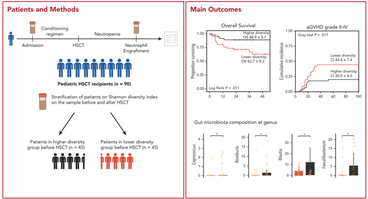
2023 - Gut microbiota diversity before allogeneic hematopoietic stem cell transplantation as a predictor of mortality in children
-
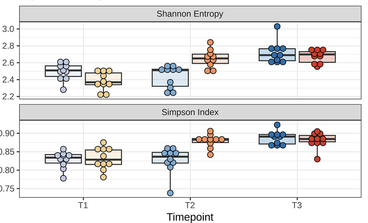
2023 - Disruption of the microbiota-gut-brain axis is a defining characteristic of the α-Gal A (-/0) mouse model of Fabry disease
-
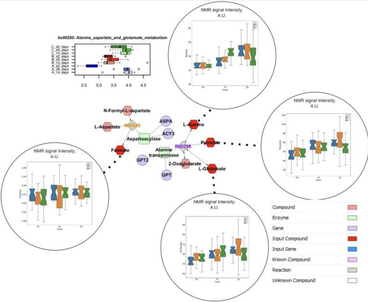
2023 - Application of multi-omic features clustering and pathway enrichment to clarify the impact of vitamin B2 supplementation on broiler caeca microbiome
-
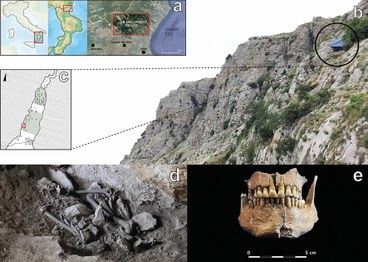
2023 - Bioarchaeological and paleogenomic profiling of the unusual Neolithic burial from Grotta di Pietra Sant’Angelo (Calabria, Italy)
-
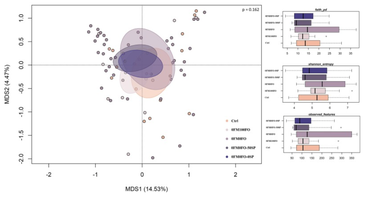
2023 - Towards a free wild-caught fishmeal, fish oil and soy protein in European sea bass diet using by-products from fishery and aquaculture
-
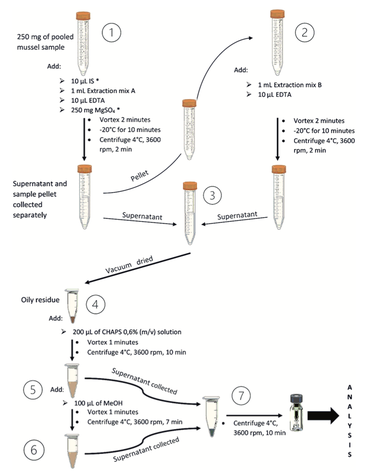
2023 - Extraction method for the multiresidue analysis of legacy and emerging pollutants in marine mussels from the Adriatic Sea
-
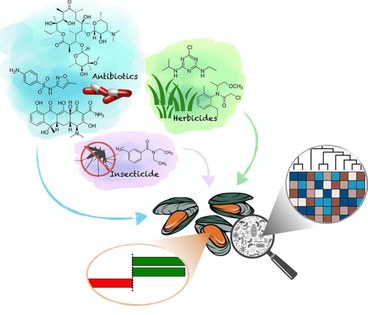
2023 - Seasonal dynamics of the microbiome-host response to pharmaceuticals and pesticides in Mytilus galloprovincialis farmed in the Northwestern Adriatic Sea
-
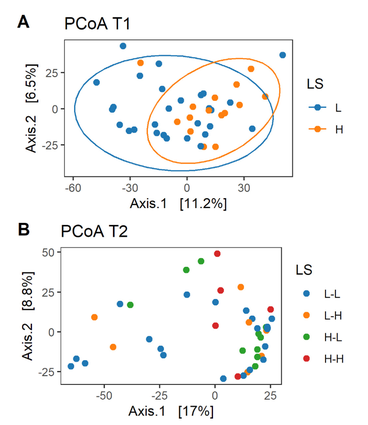
2023 - Influence of body lesion severity on oxidative status and gut microbiota of weaned pigs
-
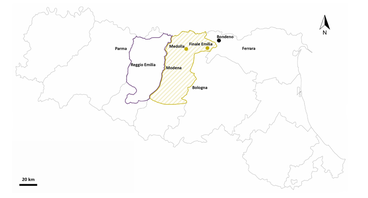
2023 - Composition and biodiversity of soil and root-associated microbiome in Vitis vinifera cultivar Lambrusco distinguish the microbial terroir of the Lambrusco DOC protected designation of origin area on a local scale
-
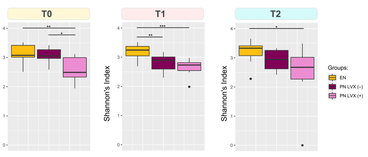
2023 - Levofloxacin prophylaxis and parenteral nutrition have a detrimental effect on intestinal microbial networks in pediatric patients undergoing HSCT
-
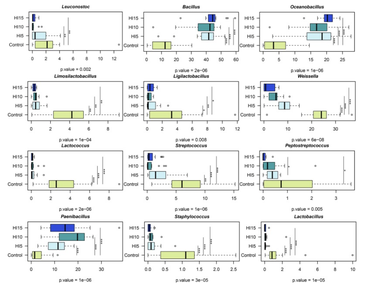
2023 - Hermetia illucens larvae meal as an alternative protein source in practical diets for gilthead sea bream (Sparus aurata): A study on growth, plasma biochemistry and gut microbiota
-
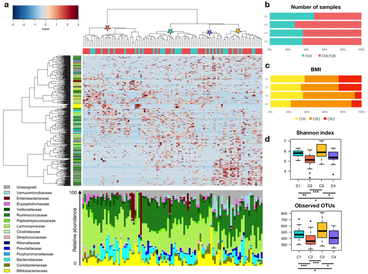
2022 - Multi-omics gut microbiome signatures in obese women: role of diet and uncontrolled eating behavior
-
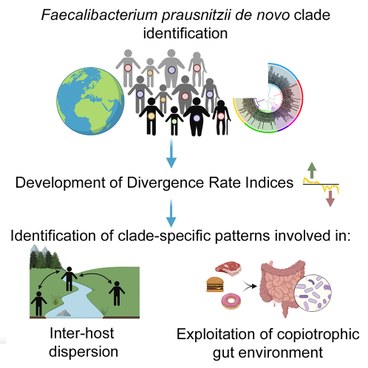
2022 - Exploring clade differentiation of the Faecalibacterium prausnitzii complex
-
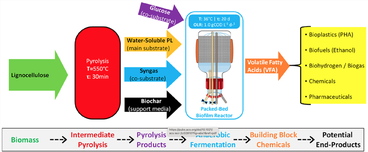
2022 - Conversion of Pyrolysis Products into Volatile Fatty Acids with a Biochar-Packed Anaerobic Bioreactor
-
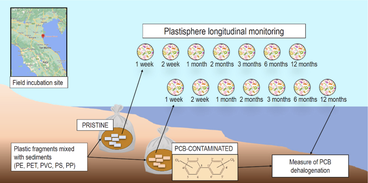
2022 - Bacterial colonization dynamics of different microplastic types in an anoxic salt marsh sediment and impact of adsorbed polychlorinated biphenyls on the plastisphere
-
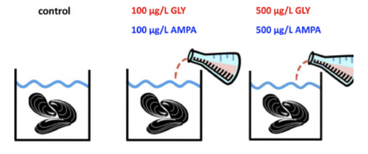
2022 - Assessment of bioaccumulation of glyphosate and aminomethylphosphonic acid in marine mussels using capillary electrophoresis with light‐emitting diode‐induced fluorescence detection
-
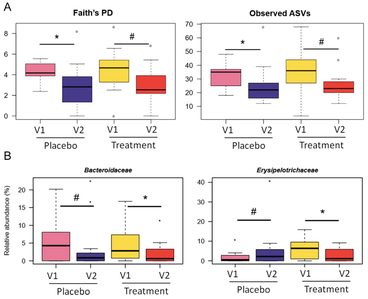
2022 - Geraniol Treatment for Irritable Bowel Syndrome: A Double-Blind Randomized Clinical Trial
-
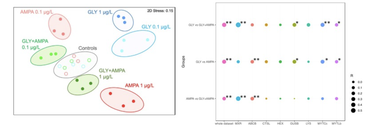
2022 - Glyphosate and its breakdown product AMPA elicit cytoprotective responses in haemocytes of the Mediterranean mussel (Mytilus galloprovincialis)
-
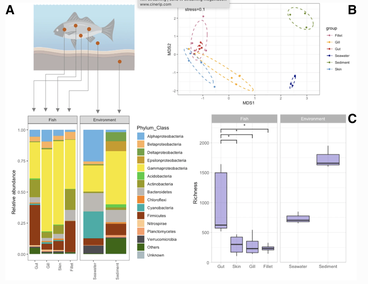
2022 - Host-associated and Environmental Microbiomes in an Open-Sea Mediterranean Gilthead Sea Bream Fish Farm
-
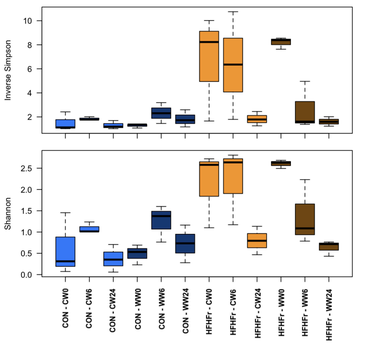
2022 - Wholegrain fermentation affects gut microbiota composition, phenolic acid metabolism and pancreatic beta cell function in a rodent model of type 2 diabetes
-
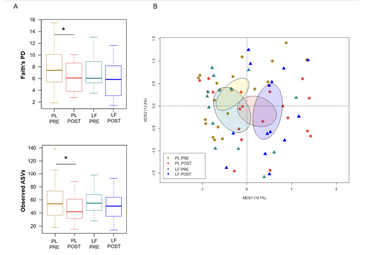
2022 - Oral Lactoferrin Supplementation during Induction Chemotherapy Promotes Gut Microbiome Eubiosis in Pediatric Patients with Hematologic Malignancies
-
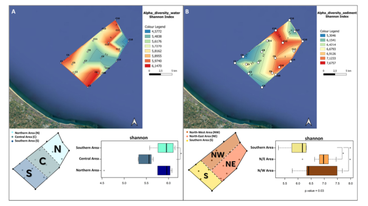
2022 - Microbiome network in the pelagic and benthic offshore systems of the northern Adriatic Sea (Mediterranean Sea)
-
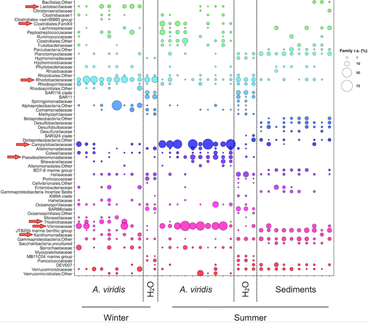
2022 - Plasticity of the Anemonia viridis microbiota in response to different levels of combined anthropogenic and environmental stresses
-
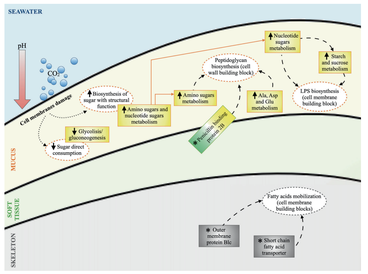
2022 - Metagenomic shifts in mucus, tissue and skeleton of the coral Balanophyllia europaea living along a natural CO2 gradient
-
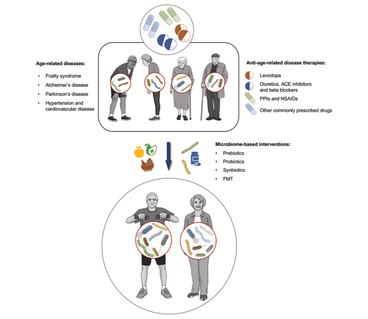
2022 - Age-related diseases, therapies and gut microbiome: A new frontier for healthy aging
-
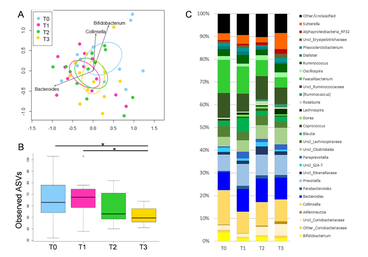
2022 - Fecal microbiota monitoring in elite soccer players along the 2019-2020 competitive season
-
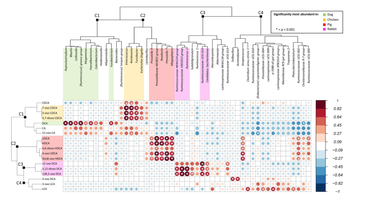
2022 - Analysis of fecal bile acids and metabolites by high resolution mass spectrometry in farm animals and correlation with microbiota
-
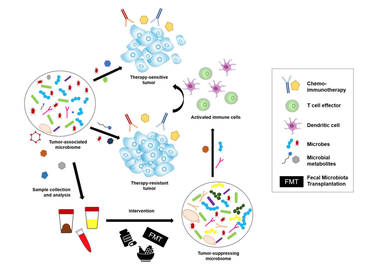
2022 - Host Microbiomes in Tumor Precision Medicine: How far are we?
-
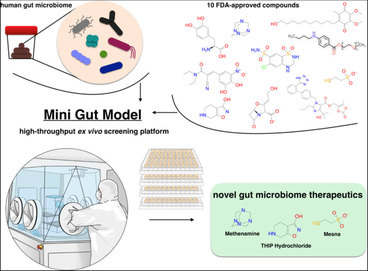
2021 - Searching for New Microbiome-Targeted Therapeutics through a Drug Repurposing Approach
-
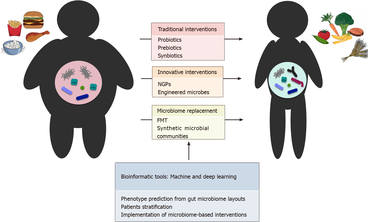
2021 - Over-feeding the gut microbiome: A scoping review on health implications and therapeutic perspectives
-
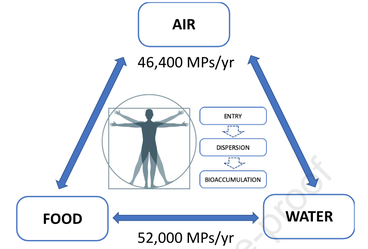
2021 - Microplastics shape the ecology of the human gastrointestinal intestinal tract
-
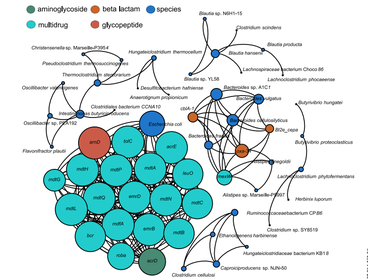
2021 - The Human Gut Resistome up to Extreme Longevity
-
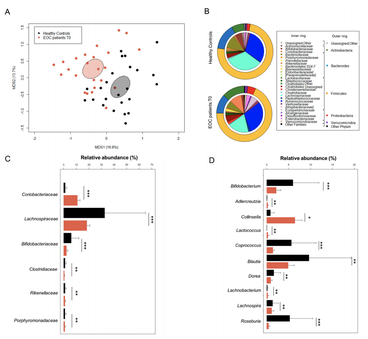
2021 - Gut Microbiota Dynamics during Chemotherapy in Epithelial Ovarian Cancer Patients Are Related to Therapeutic Outcome
-
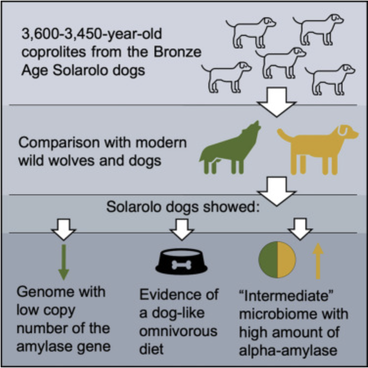
2021 - The gut microbiome buffers dietary adaptation in Bronze Age domesticated dogs
-
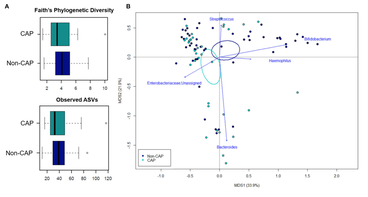
2021 - Low-Dose Antibiotic Prophylaxis Induces Rapid Modifications of the Gut Microbiota in Infants With Vesicoureteral Reflux
-
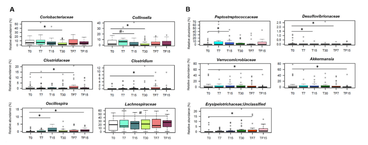
2021 - Effects of a Diet Based on Foods from Symbiotic Agriculture on the Gut Microbiota of Subjects at Risk for Metabolic Syndrome
-
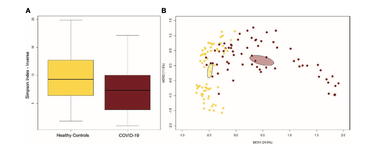
2021 - The Gut Microbiota of Critically Ill Patients With COVID-19
-
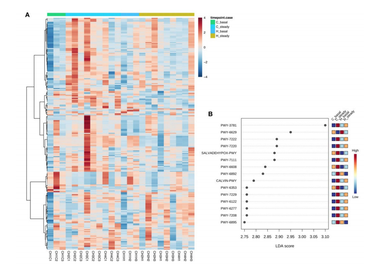
2021 - An In Vitro Pilot Fermentation Study on the Impact of Chlorella pyrenoidosa on Gut Microbiome Composition and Metabolites in Healthy and Coeliac Subjects
-
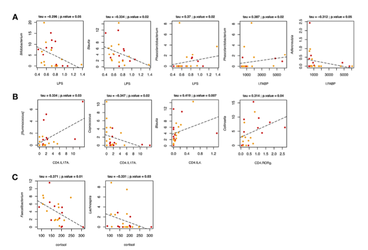
2021 - Influence of a high-impact multidimensional rehabilitation program on the gut microbiota of patients with multiple sclerosis
-
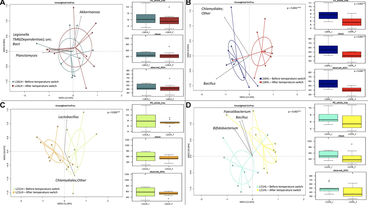
2021 - Interaction Between Dietary Lipid Level and Seasonal Temperature Changes in Gilthead Sea Bream Sparus aurata: Effects on Growth, Fat Deposition, Plasma Biochemistry, Digestive Enzyme Activity, and Gut Bacterial Community
-
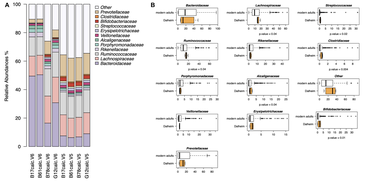
2021 - G2S: A New Deep Learning Tool for Predicting Stool Microbiome Structure From Oral Microbiome Data
-
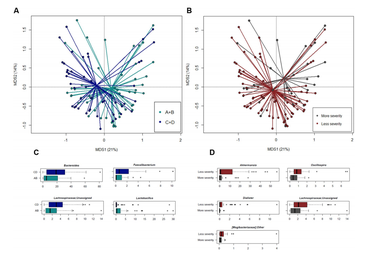
2021 - Changes in gut microbiota in the acute phase after spinal cord injury correlate with severity of the lesion
-
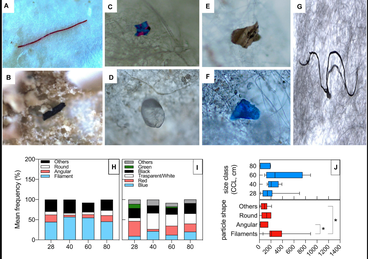
2021 - Impact of Plastic Debris on the Gut Microbiota of Caretta caretta From Northwestern Adriatic Sea
-
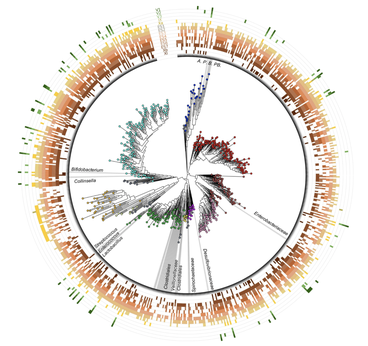
2021 - Components of a Neanderthal gut microbiome recovered from fecal sediments from El Salt
-
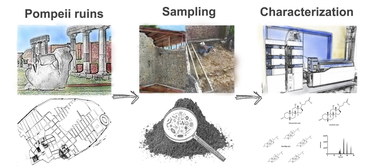
2021 - Bile acids and oxo-metabolites as markers of human faecal input in the ancient Pompeii ruins
-
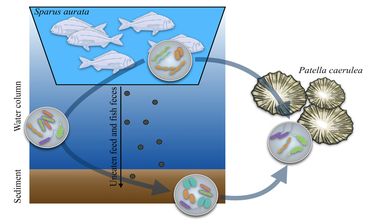
2021 - Impact of Marine Aquaculture on the Microbiome Associated with Nearby Holobionts: The Case of Patella caerulea Living in Proximity of Sea Bream Aquaculture Cages
-
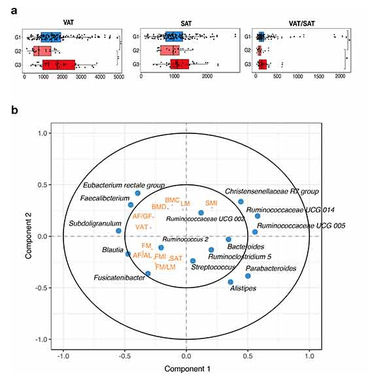
2021 - Elevated gut microbiome abundance of Christensenellaceae, Porphyromonadaceae and Rikenellaceae is associated with reduced visceral adipose tissue and healthier metabolic profile in Italian elderly
-
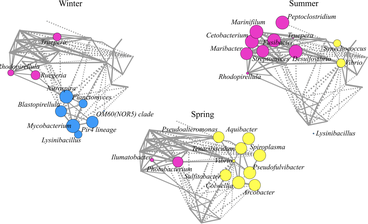
2021 - Seasonal Changes in Microbial Communities Associated With the Jewel Anemone Corynactis viridis
-
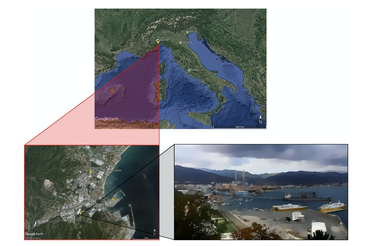
2021 - Particulate matter emission sources and meteorological parameters combine to shape the airborne bacteria communities in the Ligurian coast, Italy
-
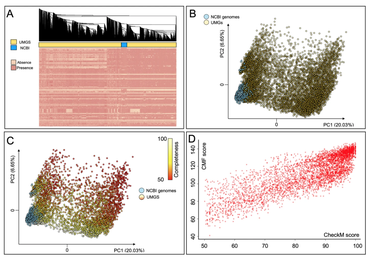
2020 - Do the human gut metagenomic species possess the minimal set of core functionalities necessary for life?
-
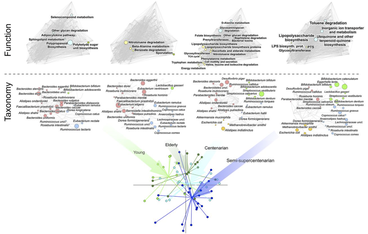
2020 - Shotgun Metagenomics of Gut Microbiota in Humans with up to Extreme Longevity and the Increasing Role of Xenobiotic Degradation
-
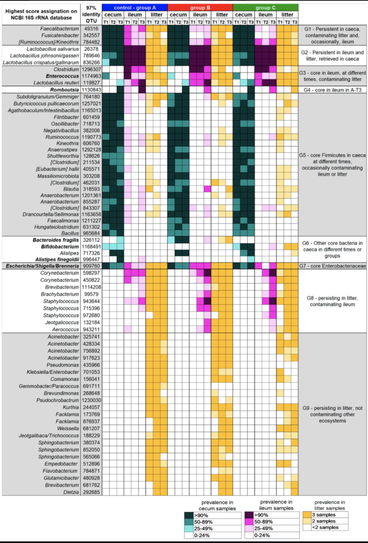
2020 - Effects of Vitamin B2 Supplementation in Broilers Microbiota and Metabolome
-
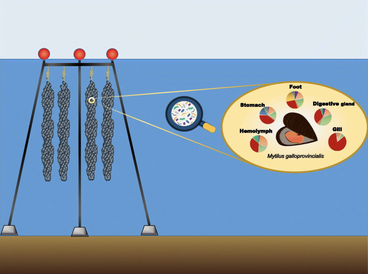
2020 - Tissue-scale microbiota of the Mediterranean mussel (Mytilus galloprovincialis) and its relationship with the environment
-
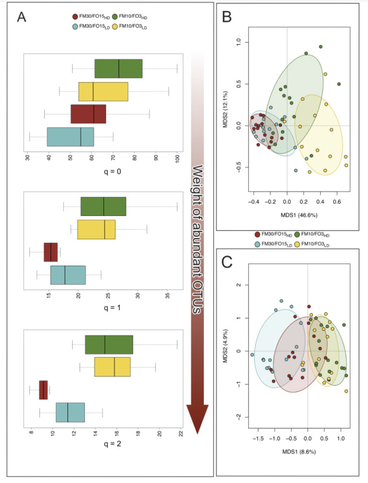
2020 - Effects of rearing density on growth, digestive conditions, welfare indicators and gut bacterial community of gilthead sea bream (Sparus aurata, L. 1758) fed different fishmeal and fish oil dietary levels
-
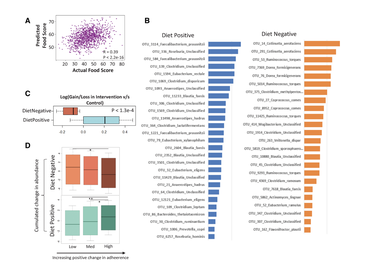
2020 - Mediterranean diet intervention alters the gut microbiome in older people reducing frailty and improving health status: the NU-AGE 1-year dietary intervention across five European countries
-
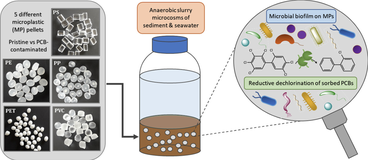
2020 - Microbial colonization of different microplastic types and biotransformation of sorbed PCBs by a marine anaerobic bacterial community
-
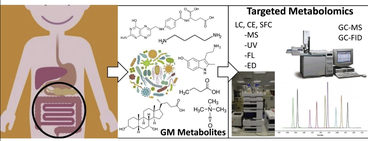
2020 - Assessment of gut microbiota fecal metabolites by chromatographic targeted approaches
-
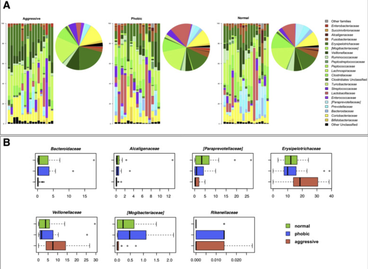
2020 - Gut microbiome structure and adrenocortical activity in dogs with aggressive and phobic behavioral disorders
-
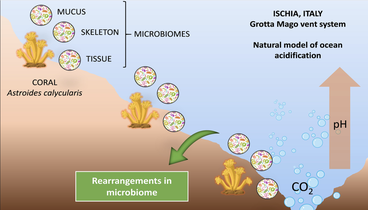
2020 - Patterns in microbiome composition differ with ocean acidification in anatomic compartments of the Mediterranean coral Astroides calycularis living at CO2 vents
Microbes for sustainable food
Interview to Prof. Marco Candela about the role of microbiome in sustainable food production. (Video in Italian)
